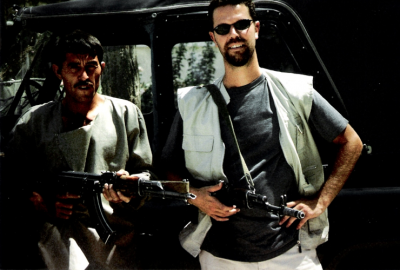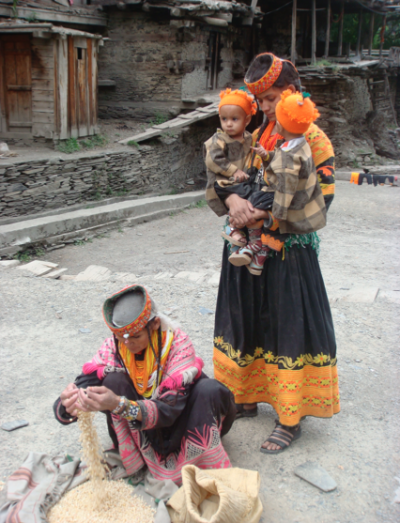Friends Academy fights back against anti-Islam rhetoric
Islamic countries are often the subject of fear and anger, but eight graders at Friends Academy got to see the beauty of Islam.
On Feb. 18, Dr. Brian Glyn Williams treated students to stories of his travels through Pakistan, Afghanistan and the Middle East. The students have been reading “I am Malala: The Girl Who Stood Up for Education and Was Shot by the Taliban,” and so Williams gave students the opportunity to learn about Pakistani and Afghani cultures and terrorist groups that we often hear often but may not understand, as well as dispel misconceptions surrounding natives and Islamic culture.
Malala Yousafzai is an Pakistani activist for women's education who was shot in the head by the Taliban at age 14, but survived. She is now the youngest Nobel Peace Prize laureate.
A professor of Islamic history at UMass Dartmouth, Williams’ is one of the most renowned experts in Islamic relations and Afghani culture. He has traveled to the Middle East and South Asia nearly 30 times.
Students enjoyed a slideshow documenting his travels, including through the Swat Valley, where Malala hails from. In his travels, Williams traveled with a guide, as well as his wife, observed local customs, participated in celebrations and interacted with locals and, on a few occasions, the Taliban, which is an Islamic fundamentalist group that is made up “uneducated” local tribesmen.
No matter where he went, Williams was always touched by the friendliness and generosity of the locals, who often barely had enough to feed themselves but would still offer him food and drink. He assured students that the Taliban was the minority, whereas kind and hospitable people were everywhere.
Williams showed students the good and the bad in both countries. Though Pakistan and Afghanistan both boast beautiful geography, architecture and customs, they are both war-torn countries colored by ongoing conflict.
To stay safe, Williams was told he would need to purchase a machine gun, and so he did for $350.
“It’s not just a machine gun but a rocket-propelled grenade launcher,” Williams said. “You could blow up a house with this thing.”
The students were astonished, but Williams was quick to share another anecdote, this one closer to home.
"I went to grad school in Indiana, and there was a store that sold liquor and guns," Williams said.
However, Williams went back and forth on whether to share the harshest reality of living in South Asia: honor killings. Honor killings, usually performed by a member of a “dishonored” female’s family, is homicide committed when a girl refuses to enter an arranged marriage, is not perceived to be chaste or is the victim of rape.
“It’s a way for men to dominate the morality and sexuality of women,” Williams said. “That’s the world Malala comes from.”
For social studies teacher Morgan Lord and English teacher Marlaina Gespardi Trepanier, “I Am Malala” has been eye-opening for students who are constantly being bombarded by anti-Islamic rhetoric, and Williams helped illustrate how skewed the perception of Islam is.
“There is, sadly, a lot of Islamophobia and kids have been misinformed because of the media,” Lord said. “And that was the goal, to talk about Islam and the beauty of Islam.”
“The majority of Muslims are peaceful and do not condone violence,” Gespardi Trepanier added.
“I thought it was really cool that we’re not learning about history, we’re learning about things that are happening now that are actually affecting our society currently,” said eighth grader Madeleine Pelietier.
“It’s a giant eye-opener to see what’s happening in other parts of the world and how different it is from where we live,” Pelletier said.

















